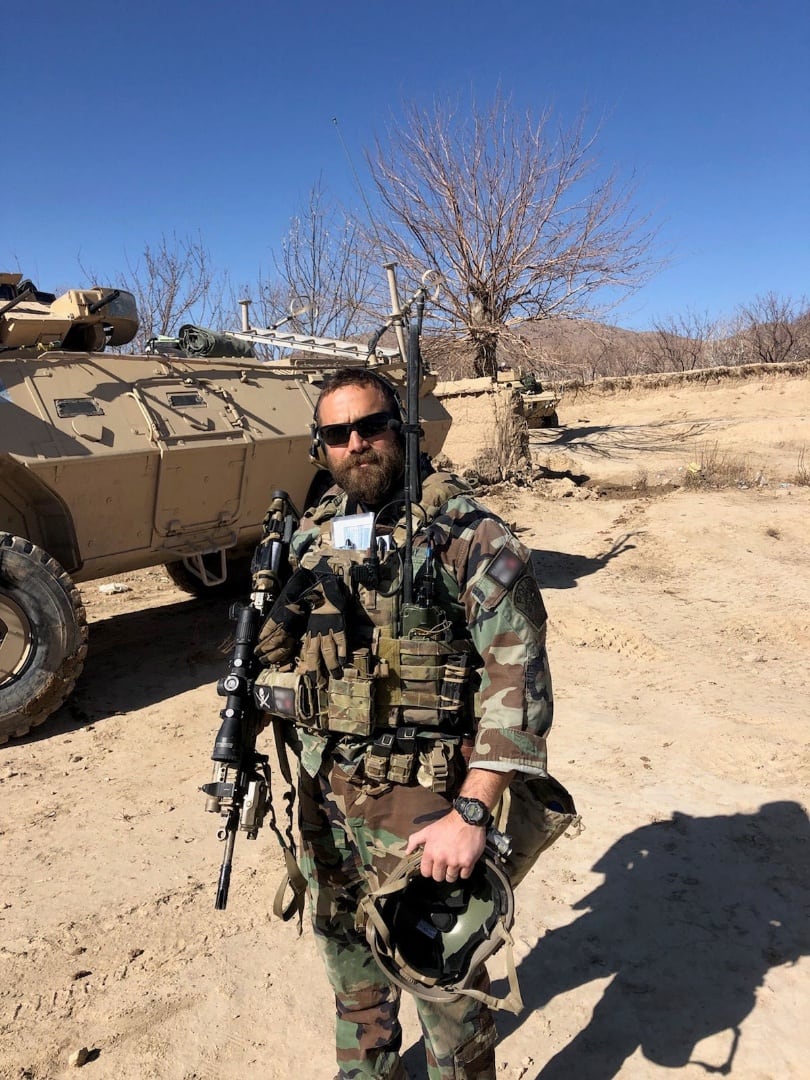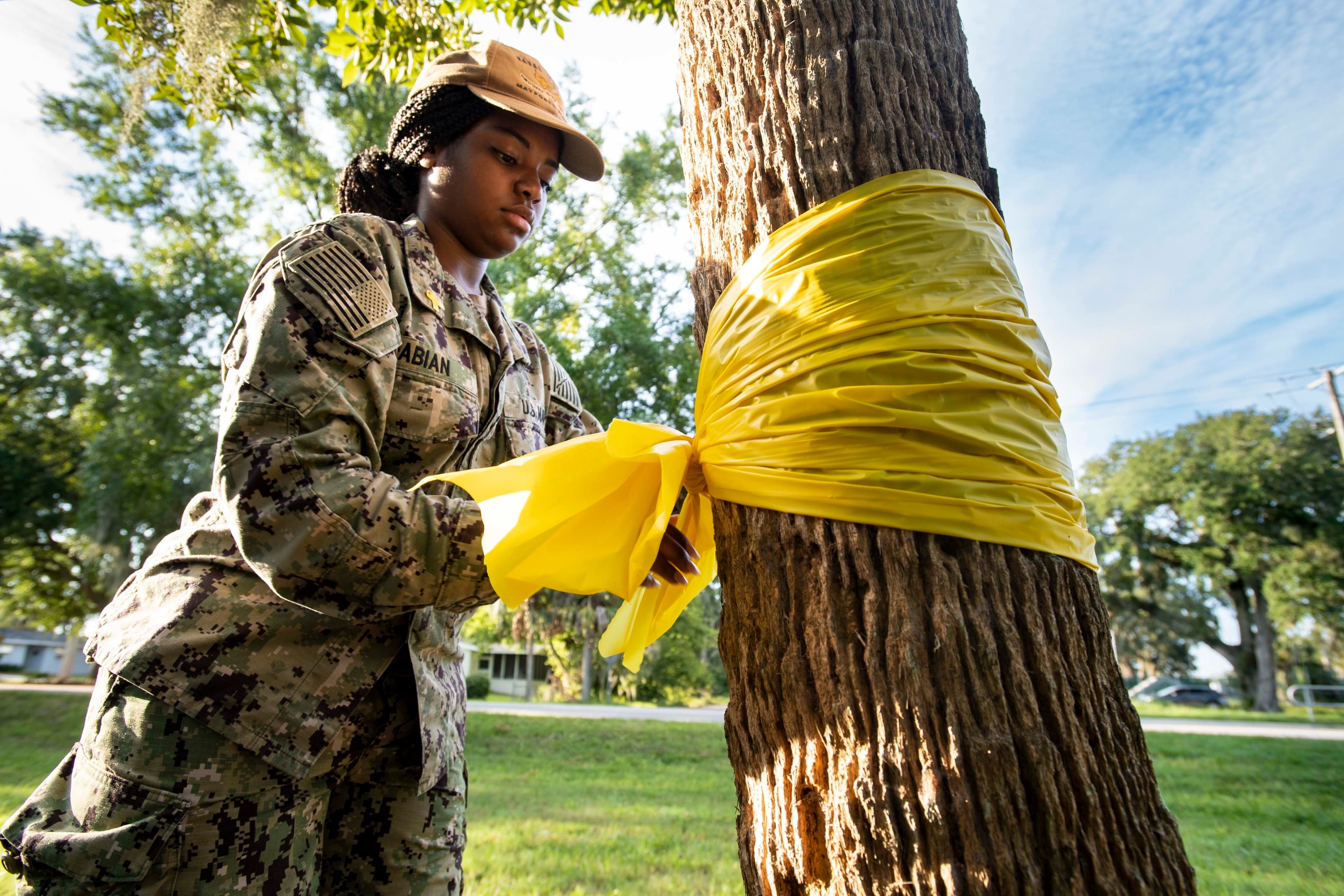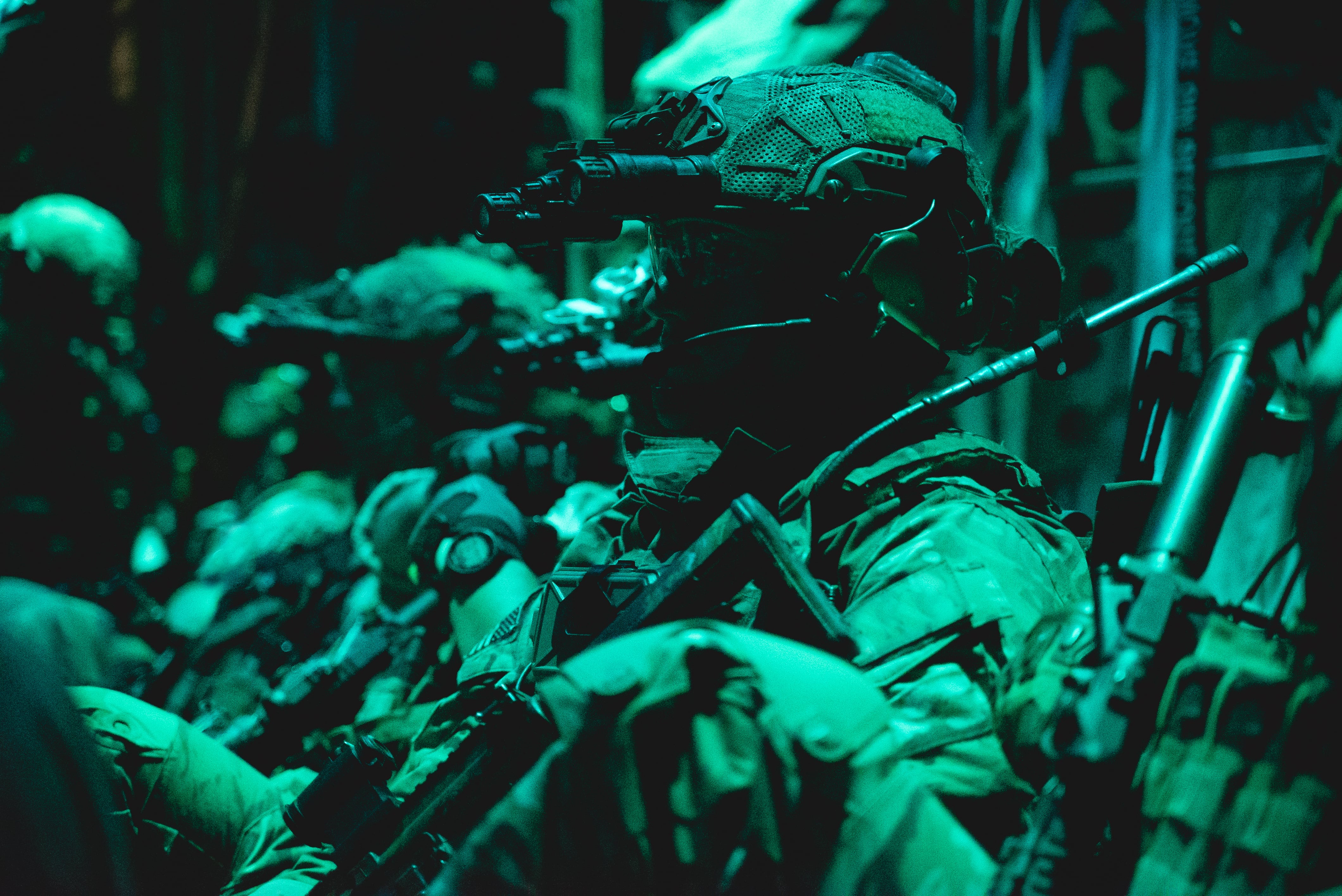This article discusses suicide and mental health. If you are experiencing suicidal thoughts, contact the National Suicide Lifeline at 800-273-8255 or the Veterans and Military Crisis line by calling 1-800-273-8255 and pressing 1, or by sending a text to 838255.
The Army’s special operations community has borne the brunt of twenty years of war, training and deploying at what a then-senior commander called an “unsustainable” pace. That has led to destructive effects on the mental health of many soldiers, according to two senior special forces NCOs who discussed the topic in a podcast released Wednesday by 1st Special Forces Command.
The podcast featured 1st Sgt. Joshua Thompson, a 19-year special operations veteran assigned to the John F. Kennedy Special Warfare Center and School, and Master Sgt. Chris Copper, a Green Beret and former Ranger currently serving as the senior enlisted advisor for 1st Special Forces Command’s human performance and wellness initiative.
The two Green Berets have a combined total of 14 combat tours in Iraq and Afghanistan between them.
But they weren’t there to talk about their resumes.
They were there to share their personal stories, fight rumors and offer resources for soldiers who might want to seek help.

Copper will host a special series of the command’s podcast, The Indigenous Approach, devoted to destigmatizing mental health issues in the Army special operations community.
“We need a way to normalize these feelings and emotions that we have, [and] the ability to share our triumphs and tribulations,” Copper said. “This series of episodes…are meant to be an outlet for sharing these types of stories for those who’ve only known the Army life during the Global War on Terror, and help our fellow soldiers who feel they’re walking this road alone.”
The suicide crisis extends beyond special operations, too. A study released in June estimated that 30,177 veterans of the Iraq and Afghanistan wars have died by suicide, compared to 7,057 who had died overseas during those conflicts.
RELATED

Thompson became a well-known mental health figure in the special operations community after he wrote about his efforts to wear different “masks” for different daily situations in his life.
His team suffered a mass casualty event in Afghanistan that haunted him, so he turned to alcohol.
“I thought it was healthy to go to the [liquor store] once or twice a week and purchase four bottles of whiskey each visit, and make one disappear a day,” he said. “It was like keeping what I had and what I felt to myself.”
It was the suicide death of a close friend that brought Thompson to the point of seeking help.
“His wife stood on stage during the funeral and delivered her message,” he said on the podcast. “I felt as if she was telling my story.”
But rumors about the consequences of reaching out for treatment nearly stopped Thompson in his tracks.
“Everyone knows that if you go to Behavioral Health, you lose your security clearance, right?” he said in his article. “It was also the first question that I asked upon arrival to Behavioral Health.”
Thompson learned that was a myth after he started seeking behavioral health treatment. And when he realized that his story could help show others the way to help, he decided to tell it publicly in spite of his fears it could derail his promotion chances.
“At this point, if this affects my career…screw it,” he said. “If it helps one person, then it was all worth it.”
Copper said the command is working to ensure that leaders at the lowest levels know what mental health resources are readily available for soldiers.
Ultimately, Thompson said, there needs to be a grassroots culture shift: Soldiers struggling with mental health issues should view using behavioral health resources to be routine as physical therapy for injuries — and that starts at the small unit level.
“If you broke your arm, if you broke your leg, what are you going to do? You’re going to go to the doctor; you’re going to get that stuff figured out, you’re going to remain [in the unit]…you may miss a [training] trip, but you’re getting the help that you need,” he said. “And I don’t think that your brain should be any different.”
The episode of The Indigenous Approach podcast titled “The Masks We Wear” released Wednesday and is available through multiple podcast hosting services, including Spotify, 1st Special Forces Command officials said.
Davis Winkie covers the Army for Military Times. He studied history at Vanderbilt and UNC-Chapel Hill, and served five years in the Army Guard. His investigations earned the Society of Professional Journalists' 2023 Sunshine Award and consecutive Military Reporters and Editors honors, among others. Davis was also a 2022 Livingston Awards finalist.





